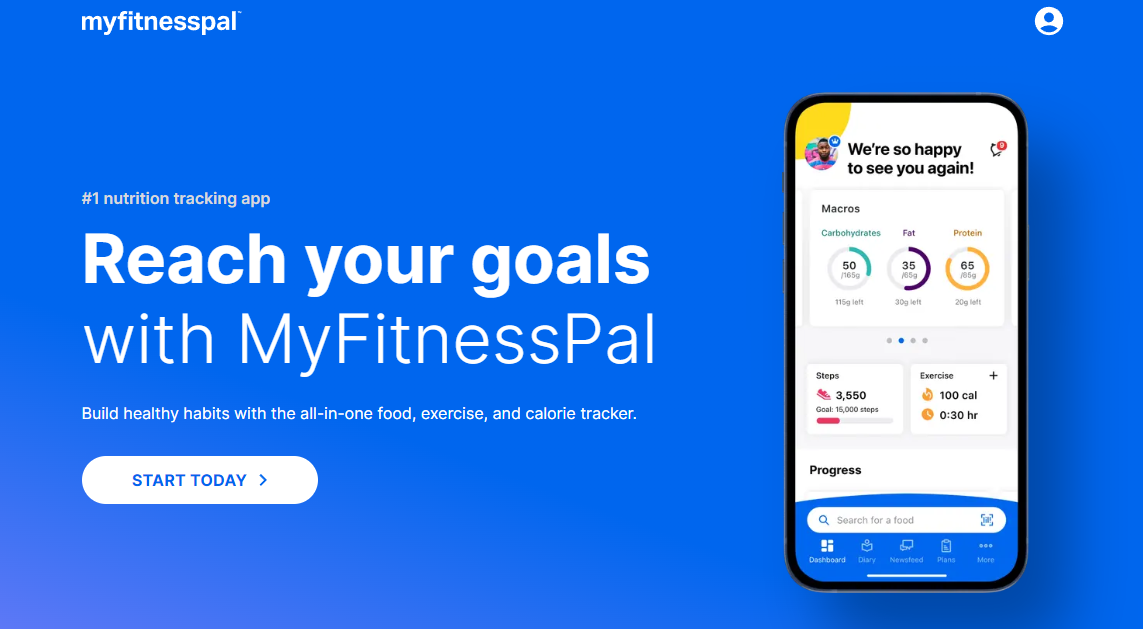Whether you’re seeking a change from traditional blogging or looking to diversify your content strategy, there are many blogging alternatives that cater to different communication styles and preferences.
In this article, we’ll delve into alternatives to traditional blogging and provide insights into what you can do instead to engage your audience and share your thoughts and expertise effectively.
- Building a successful blog from scratch may feel overwhelming, but luckily, there are many alternatives
- Alternatives to blogging include vlogs, podcasts, newsletters, social media influencing, and other content formats
- Many bloggers opt to go live or build a niche app as an alternative to blogging
Boost Your Blog with These Top Website Builders
16 Great Blogging Alternatives That Are Worth Trying
There are many alternatives to blogging, but the 16 options below are the most common ones. They will help you connect with your audience and convey your message beyond the borders of a traditional blog.
Turn Your Blog Into a Vlog
A vlog, or video blog is a content format where creators use videos to communicate their ideas, experiences, or information to their audience.
It involves recording yourself or different events and sharing these videos on platforms like YouTube or TikTok.
Vlog is a powerful type of content for visual storytelling through personal or informative videos. Video content tends to be more engaging and can establish a deeper connection with your audience. According to At Once, vlogging saw an increase of 74% in popularity in the past year.
Vlogs also allow for visual demonstrations and can enhance the understanding of complex topics. It’s worth mentioning that creating vlogs on YouTube and other video-sharing platforms can expand your reach.
- Engagement through visual presentation
- Wider reach
- Visual explanation
- Personal connection
- It’s time-consuming
- Vlogging requires equipment like cameras and microphones which can be expensive
- Vlogging is a competitive content creation space
Learn more about the differences between a blog and a vlog
Start a Podcast
A podcast is an audio program that is available for streaming or downloading on the internet.
Podcasters typically discuss a wide range of topics, share stories, or conduct interviews, and audiences can listen to episodes at their convenience. Podcasts are audio-based content formats, which involves creating content in a conversational and informative tone.
Episodes can also vary in length and frequency, while blogs are often expected to be longer to have a better SEO optimization. Starting a podcast also requires less technical equipment compared to vlogging.
The best part is that podcasts can be listened to while multitasking, which makes them a convenient option for busy audiences. Podcasts can cater to niche interests and topics attracting dedicated audiences.
- Podcasts are accessible
- Low barrier to entry
- Many niche opportunities
- Podcasts often lack visual content
- It’s important to have good audio equipment which can be expensive
Outsource Blog Post Writing
Outsourcing blog post writing is a powerful blogging alternative and it involves hiring freelance writers or content agencies to create blog content on your behalf. It’s worth mentioning that 64% of B2B marketers outsource blog copywriting.
This can help save time and ensure a consistent flow of content.
Bloggers and marketers often outsource blog writing and copywriting as a result of time constraints or lack of expertise. Additionally, outsourcing gives them access to specialized writers in specific niches and allows them to focus on other aspects of their business or content strategy.
- You can focus on strategic tasks while letting experts handle content creation
- Access to a pool of writers with diverse expertise
- Outsourcing writing is more scalable
- It requires strong quality control
- Hiring skilled writers can be expensive
- Managing remote writers comes with communication challenges
Create Other Content Besides Blogging
Creating different content types such as eBooks, online courses, pre-recorded tutorials, email newsletters, advanced guides, and web copy can be a great alternative to blogging. This type of content can help you enhance your online presence and attract more website traffic.
Other content on your website besides blogging can help broaden your audience. Additionally, it offers new avenues for monetization and financial growth through premium content. It also helps add credibility and expertise in your niche, while also improving your audience engagement.
- Brings a broader and more diverse audience
- It offers new options for monetizing your blog
- It helps establish you as the authority in your niche
- It helps enhance engagement
- It’s time-intenses
- It demands financial and technical resources
- There’s a risk of overextensions
- Various management challenges
Learn more about how to write an eBook and how to create online course
- Use Graphic Design and Infographics to Add Visuals
Infographics are visual representations of information, data, or knowledge designed to make complex concepts more understandable and engaging. They combine text, images, and graphics to convey information in a concise and visually appealing format.
Visual elements such as infographics convey information while adding a visual appeal. Visual elements such as charts and graphs also distill complex data or concepts into easily digestible and clear visuals. Also, effective use of color schemes helps highlight key points and maintain visual consistency.
- Simplifies complex information
- Attracts more viewers
- Memorable visual elements
- Adds visual appeal
- Easily shareable content
- Designing graphics requires skills in graphic designs
- People with visual impairments may have difficulty understanding the graphic content
- It has a limited content depth
Build a Niche App or Online Tool

Developing a niche app or online tool tailored to a specific audience or problem can be a strategic move.
Such tools offer unique value and can serve as a valuable asset for your brand or business.
For example, if you have a gardening blog, you can develop an app like PlantSnap. It allows you to identify certain plants you discover in nature, or learn how to care for them.
If you have a fitness blog, you can develop an app like MyFitnessPal for tracking calories and exercise routines.
These types of apps provide a practical solution that can enhance user engagement and loyalty. With a specialized tool, you can establish your brand as an authority in a particular niche or industry.
Those apps help track progress, offer a practical solution or provide quick information about a certain field within your niche.
- Niche apps or tools cater to a specific audience
- Practical solution to a problem your audience faces
- Helps establish you as a brand authority
- Many opportunities for monetization
- Development costs
- Great competition
- Difficulties with user adoption
Leverage Social Media Marketing
Utilizing social media to share your content and provide tips and tricks for your audience can prove to be a great opportunity to expand your audience and create a consistent flow of engagement, and perhaps revenue.
Social media is ideal for sharing short-form content, which can be easier to create compared to long-form content such as blogs.
Social media channels have billions of users, which can help provide access to a vast audience. With so many options for engagement, it’s easier to convert the audience into customers or followers. Setting up and maintaining social media channels is free and may require less investment compared to running a blog.
- Wider reach
- Starting a social media profile is mostly free
- Real-time engagement
- Easy to distribute content
- Targeted advertising
- Managing social media channels can be expensive
- Algorithms change often
- More likely to get negative comments
- Vast competition
Learn more about how to create a social media strategy and how to market on social media
Try Guest Blogging on Relevant Websites
Guest blogging involves creating and publishing content on other websites or blogs within your niche or industry. It’s a content marketing strategy that can help you expand your reach, build authority, and engage with new audiences.
If you engage in guest blogging, you’ll be able to tap into the audience of the host website. That means your content will be available to a broader audience. If you post blogs to reputable websites, you enhance your own credibility.
Guest posts often include links back to your own website, which means better SEO ranking. It also provides opportunities to connect with fellow bloggers, influencers, and industry experts.
- It offers greater reach
- You can build more authority
- Backlinks improve your SEO
- Great networking opportunities
- Reach into diverse audiences
- It requires a lot of time and effort
- Dealing with rejection
- Greater quality expectations
- There are link spam concerns
Go Live
Going live on various platforms, such as social media, streaming platforms or webinars, involves broadcasting real-time content to your audience.
It offers unique advantages and challenges in content creation and engagement. It provides real-time interaction with your audience. You can answer questions, address comments, and speak directly to your audience.
Live content can’t be easily scripted so the communication is genuine, which is something your audience will appreciate and support. It fosters a deeper connection and trust with your audiences. Going live is great when you’re creating time-sensitive content.
It’s also a good option for announcements and breaking rules. It allows you to provide value immediately.
- Immediate interaction
- More authenticity
- Great for announcements and breaking-news
- Risk of technical difficulties like lag or glitches
- Limited reach
Join Online Forums and Communities
Engaging in online forums and communities related to your niche or industry can be a valuable strategy to connect with like-minded individuals, share knowledge, and expand your online presence.
Online forums are great if you want to network with your peers, experts, and potential collaborators associated with your fields. It’s also great for knowledge-sharing because you can exchange insights and learn from others.
Frequent interaction in online forums can help you attract a targeted audience.
- Many networking opportunities
- Ability to share opinions and knowledge
- Consistent learning from others
- Great for building audience
- Great link-building alternative if you can’t afford guest blogging
- It’s time-consuming
- Can easily lead to over-promotion
- There are risks from trolls and spam
Write Blog Posts for Medium (or on Substack)
Contributing blog posts to platforms like Medium or Substack can be a strategic approach to reaching a broader audience and sharing your expertise in a user-friendly environment.
Medium is a great outlet for building an audience. It has a vast user base, which allows you to build a larger audience, through value-driven and informational posting.
Both Medium and Substack have user-friendly interfaces and many options that let you highlight and customize your text. Both platforms have monetization options, which means you can earn money through subscriptions and partner programs.
- Exposing your content to a larger audience
- Simple and user-friendly interface
- Options for content monetization
- Less control than posting on your own blog
- Both platforms are competitive
Post Articles on LinkedIn
Sharing articles on LinkedIn is a strategic way to leverage the platform’s professional network for content distribution and engagement.
LinkedIn lets you build a professional network. The user base consists of many professionals and industry experts, which makes an ideal audience for business and technology-related content. There is also a lot of room for networking, sharing your knowledge and learning from others.
- Great for learning from others
- You can create content both in blog posts and regular content
- Networking opportunities
- Ideal for finding more work
- More limitations than having your own blogs
- It’s hard to keep up with the algorithm changes
Be a Source for the Media through HARO
Participating in platforms like HARO as a source for media professionals can provide valuable opportunities for exposure and expert recognition. HARO gives good media exposure because you can connect with other journalists, bloggers, and reporters. You’ll be able to provide insights and opinions about a certain matter.
This increases your chances of being featured in articles, magazines, and other media outlets. You’ll also be listed as an expert authority because you’ll be cited in other articles. Finally, you can get valuable media contacts and networking opportunities.
- Strong media exposure
- Opportunity to be featured in reputable media outlets
- You’ll be considered an expert authority
- Networking opportunities
- Strong competition
- It requires time investment
Become a Guest on Podcasts
Appearing as a guest on podcasts can be a valuable strategy to reach new audiences and establish authority in your niche. Appearing on podcasts means you’ll have a broad audience reach. You’ll be able to reach engaged audiences, and that way, reach more followers and even connect with other creators.
Podcasts are a great way to showcase your opinion, knowledge, skills, and experience. Lastly, by appearing as a guest means you’ll be able to promote your cool products, services, and other content-creation channels.
- Promoting your products and services
- Appearing to a broader and diverse audience
- Ability to showcase your knowledge and skills
- Challenges with scheduling
- Limited control over the podcast’s content
Get Out and Speak
Engaging in public speaking and presentations offers unique advantages for personal and professional growth.
Speaking out publicly can help you enhance your communication skills. Whether you’re visiting a TED talk, or some other event where you’ll be able to speak publicly, it’s a great opportunity to improve your ability to convey ideas effectively.
Speaking engagements also improve your networking opportunities, allowing you to connect with a diverse audience as well as other speakers who are interested in your work.
- It helps you enhance communication skills
- Ability to share your story, opinions and skills
- Great networking opportunities
- Stage fright fears
- It requires time and preparation
Build a Lead Magnet
Creating a lead magnet, such as an eBook, whitepaper, or exclusive content, is a strategy to attract and capture potential leads or subscribers for your business or website.
Firstly, it effectively attracts potential customers by offering them valuable, free content in exchange for their contact information, thereby growing the business’s email list and customer base.
Secondly, a well-crafted lead magnet establishes the business’s expertise and credibility in its field, enhancing brand reputation and trust with its audience.
Lastly, it paves the way for nurturing leads through targeted marketing efforts, ultimately increasing the likelihood of conversions and sales.
- Lead magnets help with lead generation
- Value exchange
- Content creation around lead magnet requires time and dedication
- Challenging conversion rates
- Data privacy and ethical responsibilities
Learn more about how to create a lead magnet
Blogging Success Tips to Try Before Giving Up
Before considering alternatives to blogging, it’s worth exploring several effective strategies to breathe new life into your blog and reignite your success.
Here are some blogging success tips to consider:
- Review Your Blog Content: Take a critical look at your existing blog posts. Update and refresh outdated content, ensure it’s well-optimized for SEO, and focus on creating high-quality, valuable content that resonates with your target audience.
- Use Paid Channels: Consider investing in paid advertising channels like Google Ads or social media advertising to promote your blog and reach a wider audience. Paid promotion can boost visibility and attract new readers.
- Repurpose Content: Repurposing your existing blog content into different formats, such as videos, infographics, or podcasts, can expand your reach and engage different audience segments.
- Add Email Newsletter: Start an email newsletter to build a loyal readership. Send regular updates, curated content, and exclusive offers to your subscribers, keeping them engaged and informed.
- Take Blogging Online Courses: Enroll in blogging courses or workshops to enhance your skills. Learning from experts can help you refine your blogging strategy and implement best practices for success.
- Switch the Blogging Platform: If your current platform isn’t meeting your needs, consider migrating to a different one that offers better features, customization options, and scalability.
Google Blogger Alternatives to Consider
If you’ve been using Google Blogger for your blogging endeavors and are considering alternatives, it’s essential to explore different platforms before contemplating giving up on blogging altogether.
Each platform offers unique features and advantages that might better align with your blogging goals. Here are some popular alternatives to Google Blogger:
- WordPress: WordPress is one of the most widely used blogging platforms globally, known for its flexibility, customization options, and extensive plugin library. It’s suitable for both beginners and experienced bloggers, allowing you to create and manage a wide range of websites.
- Wix: Wix is a user-friendly website builder that offers a simple drag-and-drop interface. It’s an excellent choice for bloggers seeking an intuitive platform with a variety of design templates and features.
- Gator Builder: Gator Builder is an all-in-one website building and hosting solution offered by HostGator. It’s designed for ease of use and provides blogging tools suitable for beginners.
- Drupal: Drupal is a powerful, open-source content management system (CMS) suitable for bloggers with more technical expertise. It offers extensive customization options and is highly scalable for more complex websites.
- Tumblr: Tumblr is a microblogging platform known for its simplicity and social networking features. It’s an excellent choice for bloggers who prefer short-form content and want to engage with a built-in community.
- Weebly: Weebly is another user-friendly website builder offering a straightforward interface and a variety of templates. It’s suitable for bloggers who want a quick and easy way to set up a website.
Final Word
If you get tired of creating blogs, there are many alternatives to blogging that you can consider. If you’re still thinking about starting a blog, remember that you first need a website. Make sure to check the best website builders from our selection and choose a web hosting provider that will meet your needs.
Next Steps: What Now?
- Best Blog Examples to Inspire Your Own Content Creation
- 10 Effective Blogging Tips for Beginners
- Get ideas about what to blog about










